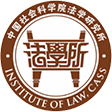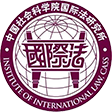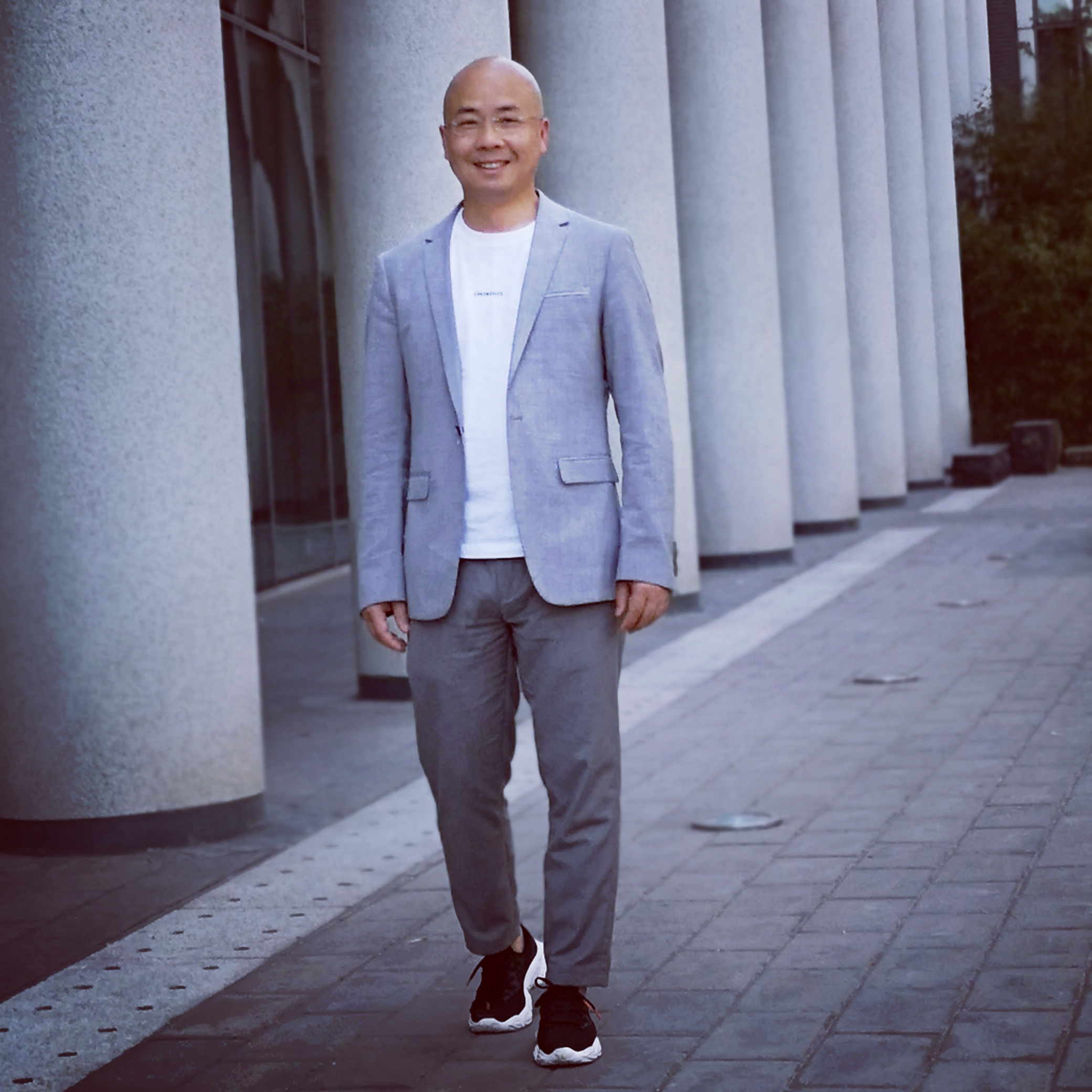李赞,湖南长沙人,北京大学法学博士,中国社会科学院国际法研究所副研究员,中国社会科学院大学法学院副教授、研究生导师。
电子邮箱:lizan@cass.org.cn
主要研究领域:国际公法、国际组织法、国际公务员法、国际人权法。
主要科研成果
一、著作类
1、《联合国内部司法上诉机制及其改革》,李赞、唐彦嘉著,社会科学文献出版社2025年版。
2、《欧洲联盟内部司法上诉机制研究》,李赞、唐彦嘉著,中国言实出版社2022年版。
3、《未名飞鸿:饶戈平教授从教四十周年纪念文集》,黄瑶、陈文学、李赞主编,北京大学出版社2018年版。
4、《國際組織的制約與平衡機制:司法管轄豁免》,独著,ISBN 978-620-2-41061-8,德国金琅学术出版社2017年版。
5、《国际组织的司法管辖豁免研究》,独著,中国社会科学出版社2013年版。
6、《国际条约在香港的适用问题研究》,饶戈平、李赞著,中国民主法制出版社2010年版。
7、《21世纪法学大视野——国际经济一体化进程中的国内法与国际规则》,李双元、李赞著,武汉大学出版社2016年版,湖南人民出版社2006年版,该书2009年获得司法部第三届全国法学教材与科研成果奖科研成果类二等奖。
8、《儿童权利的国际法律保护》,李双元、李赞、李娟著,人民法院出版社2004年版,该书获得湖南省第八届哲学社会科学优秀成果一等奖、教育部第四届中国高校人文社会科学研究优秀成果三等奖。
二、论文类
1、《论联合国内部司法机构法官遴选——兼论成员国对法官遴选干预的法治化》,独著,载AMI法学核心《国际法研究》2026年第1期。
2、《通过财政预算制度改革强化联合国内部司法的独立性——以欧盟为参照》,李赞、唐彦嘉,载《涉外法治论丛》第一辑,社会科学文献出版社2025年版。
3、《八秩奋斗,造福人类》,李赞、唐彦嘉,载中宣部《时事报告》2025年第9期,纪念联合国成立80周年专稿。
4、“第八章 国际组织法”、“第十七章 外交和领事关系法”,参编柳华文主编:《国际公法学教程》,当代中国出版社2024年版。
5、《论联合国职员的诉诸司法权》,李赞、唐彦嘉,载《人权法学》2024年第1期,人大复印资料《国际法学》2024年第8期全文转载。
6、《论构建在华国际组织内部司法机制的模式与路径》,李赞、唐彦嘉,载AMI法学核心《国际法研究》2023年第6期。
7、《从前联合国行政法庭看联合国内部司法审级的演进》,唐彦嘉、李赞,载李双元主编:《国际法与比较法论丛》第二十九辑,武汉大学出版社2023年版。
8、《论联合国内部司法上诉机制的诉讼程序——以中国籍职员争端案为视角》,李赞、唐彦嘉,载《北大国际法与比较法评论》第17卷,中国民主与法制出版社2023年版。
9、“第十五章 国际组织法”、“第二十一章 外交和领事关系法”,参编柳华文主编:《国际法研究导论》,中国社会科学出版社2021年版。
10、《国家利益视角下重新审视国际组织豁免——从美国联邦最高法院杰姆诉国际金融公司案说开去》,独著,载AMI法学核心《国际法研究》2020年第2期。
11、《建设人类命运共同体的国际法原理与路径》,独著,载AMI法学核心《国际法研究》2016年第6期;该文被《中国社会科学文摘》2017年第14期长文摘编;该文英文版“Building a Community with a Shared Future for Mankind: International Law-based Principles and Approaches”,载Contemporary Social Sciences,No.2,2018。
12、《夕阳无限好,美在近黄昏——访国际法学界老前辈李双元教授》,独著,载《国际法研究》第九卷,社会科学文献出版社2013年12月版。
13、《国际法的和平软肋——从康德的﹤永久和平论﹥说起》,独著,载《时代法学》2013年第4期。本文亦收录在中国社会科学院国际法研究所十周年所庆纪念文集《走向繁荣的国际法学》(国际公法卷),社科文献出版社2019年版。
14、《论国际组织公务行为的确定——国际组织豁免的先决条件》,独著,载《云南大学学报法学版》2013年第4期。
15、《中国社科院宜尽快设立海外研究机构》,独著,中国法学网首发,2013年6月21日。
16、《国际组织劳务争端解决机制新论》,独著,载《国际法研究》第八卷,社会科学文献出版社2013年6月版。
17、《第九届国际法论坛“发展中的国际法与全球治理”学术研讨会综述》,沈涓、李赞、张美榕,载《国际法研究》第八卷,社会科学文献出版社2013年6月版。
18、《论国际组织豁免与主权豁免的关系》,独著,载《云南大学学报法学版》2012年第5期。
19、《从〈联合国反腐败公约〉谈中国腐败犯罪刑事损害赔偿制度的构建》,李赞、谭艳,载《国际法研究》第七卷,社会科学文献出版社2012年版
20、《论国际组织豁免的职能性限制》,独著,载《国际法研究》第六卷,社会科学文献出版社2012年版。
21、《第八届国际法论坛“变革时代国际法的新发展”学术研讨会综述》,合著,载《国际法研究》第六卷,社会科学文献出版社2012年版。
22、《论国际组织的私法争端解决机制》,独著,载《国际法研究》第五卷,中国人民公安大学出版社2012年版。
23、《从IMF总裁卡恩案谈国际组织的豁免权》,独著,载《时代法学》2012年第1期。
24、《国际经济组织与外交方法解决国际经济争端》,独著,载朱晓青主编:《变化中的国际法:热点与前沿》,中国社会科学出版社2012年版。
25、《论国际组织高级职员的豁免——从国际货币基金组织总裁卡恩案说起》,独著,载《环球法律评论》2011年第5期。
26、《国际组织豁免的法律依据》,独著,载《北方法学》2011年第3期,人大复印资料《国际法学》2011年第9期全文转载。
27、《论联合国豁免的放弃》,独著,载《时代法学》2011年第1期,人大复印资料《国际法学》2011年第5期全文转载。
28、《论国际组织豁免的习惯国际法》,载《国际法研究》第四卷,中国人民公安大学出版社2011年版。
29、《论联合国专家地位的确定》,独著,载《中国国际法年刊2010》,世界知识出版社2011年版。
30、《卡恩为何没有豁免权》,独著,载《经济参考报》2011年5月24日第8版。
31、《卡恩为何“罪”难豁免》,独著,载《法制日报》2011年5月24日第10版。
32、《论国际组织辅助机关的国内法律地位——以日本“联合国大学事件”为案例》,载北京大学现代日本研究中心编:《未名日本论丛》第三辑,中国世纪出版集团有限公司、中国社科文献出版社2009年版。
33、《国际经济组织与行政方法解决国际经济争端》,独著,载《时代法学》2008年第2期,人大复印资料《国际法学》2008年第7期全文转载。
34、《国际经济组织司法机构的组织化》,独著,载《云南大学学报法学版》2008年第1期。
35、《国际经济一体化进程中主权的嬗变》,独著,载李双元主编:《国际法与比较法论丛》第17辑,中国方正出版社2007年版。
36、《从WTO和EU法律制度谈全球经济一体化与区域经济一体化的关系》,李双元、李赞,载《湖南师范大学学报社科版》2005年第6期。
37、《构建国际和谐社会的法学新视野——全球化进程中的国际社会本位理念论析》,李双元、李赞,载《法制与社会发展》2005年第5期。
38、《全球化进程中的法律发展理论评析——“法律全球化”和“法律趋同化”理论的比较》,李双元、李赞,载《法商研究》2005年第5期,人大复印资料《国际法学》2006年第1期全文转载。
39、《弱势群体权利保护国际立法初探》,蒋新苗、李赞、李娟,载《时代法学》2004年第4期,《高等学校文科学术文摘》2005年第6期摘录。
Li Zan
I. Basic Information
Li Zan, PhD, Associated Professor, graduated from Law School of Peking University, and got his doctoral degree in 2010. He is anassociate research fellow at the Department of Public International Law, Institute of International Law, Chinese Academy of Social Sciences(CASS) since 2013. He is also a professor at the Graduate School of CASS and the School of Law and Politics of University of CASS.
Professor Li’s research and teaching focus on the theory of public international law, the law of international organizations, cultures and international law, international human rights protection of the elderly and the old-age care in China. He has authored or edited more than 20 academic publications in international law, including 6 books and 14 articles. His representative works include the Jurisdictional Immunity of International Organizations(2013), the Application of International Treaties in Hong Kong (2010), etc.
II. Main Academic Viewpoints
1.Jurisdictional Immunity of International Organizations before Domestic Courts:Restriction and Balance. As international organizations (IOs) becoming increasingly active and their functions constantly expanding,they continue to wrestle internally with the questions of when they have immunity and how to realize it in domestic judicial proceedings. The subject of immunity of IOs has been on the agenda of ILC for 30 years as part of the study of ‘relations between states and international organizations’, but in 1992, ILC decided to put aside the consideration of the topic. In recent years, some scholars and ILC members began to rethink and call for continued deep going study of IO jurisdictional immunity. This study discusses the jurisdictional immunity of IOs, namely whether IOs have immunity and how to realize it in domestic judicial proceedings.
The study concentrates on the legality and legitimacy of IO jurisdictional immunity and proceeds in four parts: (i) defining the existing legal sources of IO jurisdictional immunity; (ii) exploring the functional limitations on such immunity; and (iii) analyzing the limitations on such immunity that exist via waivers of immunity and (iv) alternative dispute settlement mechanisms.
This study seeks to review IO jurisdictional immunity thoroughly to fill in existing gaps in scholarly attention and to assist practitioners who must regulate IO immunity via treaty or domestic legislation. To do so, this study makes two claims. First, it argues that IO jurisdictional immunity is a restrictive right of IOs. In doing so, it rejects as superfluous the view of scholars who insist that IOs deserve absolute jurisdictional immunity. This study finds this restrictive right to immunity is needed in order for IOs to function independently in the course of implementing their purposes without interference from member states. This “functional necessity test” for IO jurisdictional immunity can identify when immunity is required based on whether it would maintain an IO’s independence and protect its effective functioning. But this functional necessity for immunity is not unlimited, even if IOs themselves might desire absolute immunity. Just as states may be over-strict in denying IO’s jurisdictional immunity, IO immunity itself should be tailored to avoid overly interfering with the operation of a state’s legal system. Second, assuming functional necessity dictates a restrictive IO right to jurisdictional immunity, this study discusses in detail two modes for limiting IO immunity: the existence of compulsory waivers of immunity and remedial arrangements for private party claims via alternative dispute settlement mechanisms. Taken together, IO functional immunity, compulsory waivers of immunity, and alternative dispute settlement mechanisms provide an immunity regime that will protect the effective functioning of IOs without causing unreasonable damage to the sovereignty of states. The restriction and balance of IO jurisdictional immunity connect and influence each other. The restriction of IO jurisdictional immunity is useful and helpful to realize the balance of IO jurisdictional immunity, which is the reason and result of restricting the IO jurisdictional immunity.
2. Doctrine of International Law and Ways to Construct a community with shared future for mankind.International law is needed in the construction ofa community with shared future for mankind. In the process of globalization, the common interest of international society is continuously strengthened and become the material basis of the constructionof a community with shared future for mankind. The doctrine of International-Community-Orientation, which is based on but transcends sovereignty, is the ideological basis. The moral basis is the need to realize the international social justice and strikea balance between formal justice and substantive justice. In order to reduce the obstacles to communications among countries, the laws different countriesare developing towards convergence and becoming the domestic approach to the construction of a community with shared future for mankind. International law and international organizations have promoted and maintained the peace of world, but have failed realized the perpetual peace of the world. The international law should attach more importance to theconstructionof inner peace of human beings, whichis a newapproach to realizing the perpetual peace of the world and constructinga community with shared future for mankind. The peaceful rise of China based on the traditional Chinese culture and primary principles of international law is the unique contribution made by China to the construction of a community with shared future for mankind.




